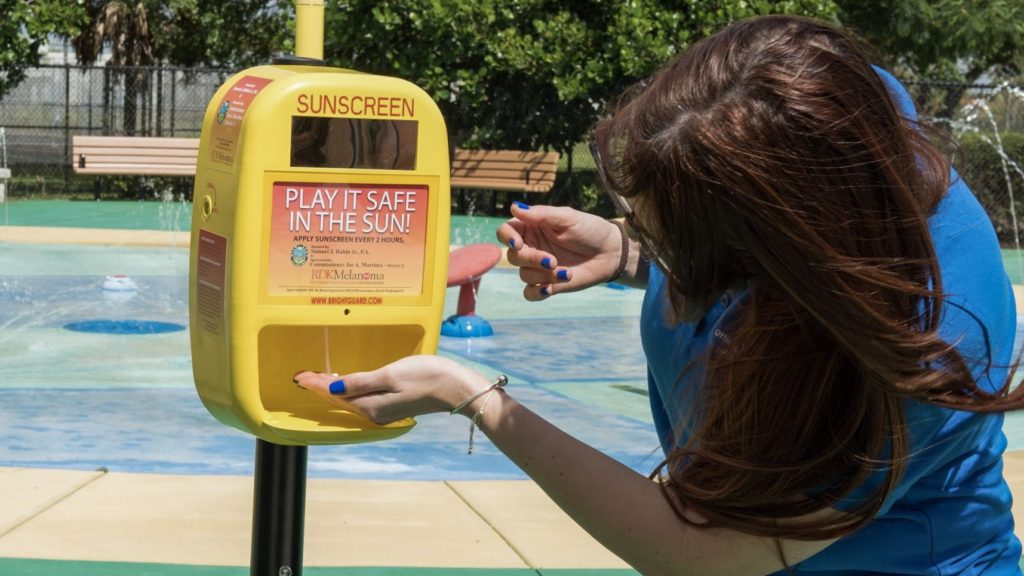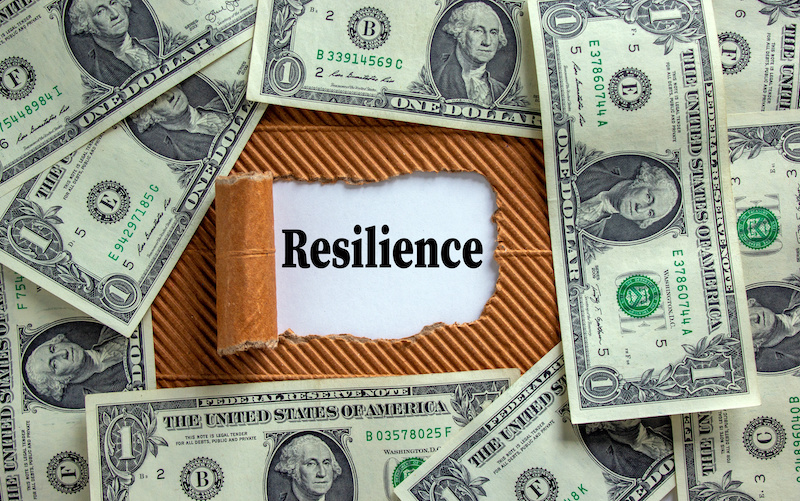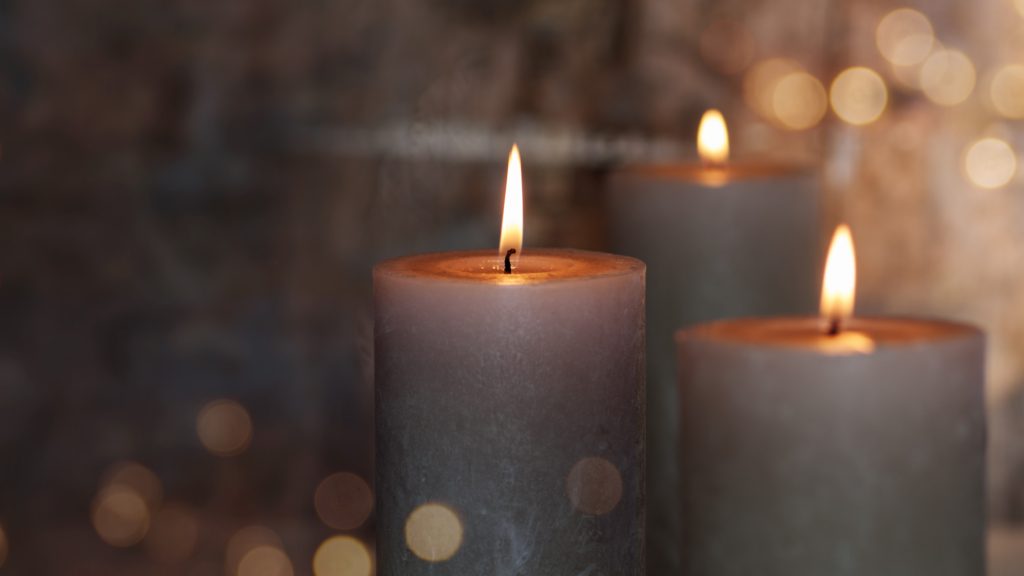Should There Be Sunscreen Dispensers on KB Beaches?
Annali HaywardJune 24, 2019

In this undated photo provided by Miami-Dade Parks, a sunscreen dispenser at Westwind Lakes Community Park in Kendall is seen in operation. The pilot project is aimed at preventing skin cancer. (Miami-Dade Parks via Key News)
A new initiative to combat melanoma by providing sunscreen dispensers in public places has launched in a Miami location. Could it come to Key Biscayne?
The Westwind Lakes park in West Kendall will benefit from a free, fully-stocked sunscreen dispenser in a trial period expected to last six months to a year.
The initiative is facilitated by the Richard Kann Melanoma Foundation, and was spearheaded by Miami-Dade County Commissioner Joe A. Martinez in September.
The foundation connects donors – in this case a local attorney who wished to remain anonymous – with municipalities wanting to protect their citizens from the sun. They would be “delighted” to expand to Key Biscayne, according to director of operations Rita Fox.
“Our mission is education and prevention,” said Fox, telling Key News the organization started after its founder, Miami Beach native Debbie Schwarzberg, suffered the loss of her brother Richard aged 45 from a late-diagnosis melanoma.
Skin cancers are “by far” the most common of all cancers according to the American Cancer Society, and melanoma rates have been rising for the last 30 years. Perhaps even more pertinent for Key Biscayne, the risk increases with age, with the most common age of diagnosis 63.
But the question of whether municipalities should be involved in providing such a service is not clear-cut to everyone.
Key Colony Homeowners’ Association Antonio Camejo expressed caution at the idea of having dispensers on the beach.
“I think sunscreen properly used is important, but it is also a very personal decision,” he said, saying people have different preferences for different types of sunscreens and even for using it at all.
“Some people do not…since many sunscreens block healthy UVB rays needed to produce vitamin D in the skin, while allowing unhealthy UVA rays through.”
The advice of the American Academy of Dermatology, is that “everyone” should use sunscreen that blocks both types of rays.
The products in question here are, along with the dispenser, made by Californian company Bright Guard. They provide two options for users: both are reef-safe, organic UVA/UVB broad spectrum SPF30 creams, and one of them targets active use in water sports and athletics – well suited for the splash pad and gardens of the Westwind Lakes Park location.
Pilot projects are currently in West Palm Beach, Jupiter and Boca Raton, as well as northern states like Pennsylvania and Philadelphia.
Donors typically provide $1,500 in funding to the foundation to use for setting up the dispenser and stocking it with sunscreen for half a year or more depending on usage rates. At those levels the foundation does not make any profit, so some donors choose to spend more.
The foundation is purposefully starting slow to make sure the program is sustainable. “We’re not trying to have 20 dispensers up and down the beach, as then you have a maintenance situation,” said Fox.
Rather, the device serves as a “tool for awareness.”
For more information visit http://melanomafoundation.com/ray-sunscreen-dispenser/


